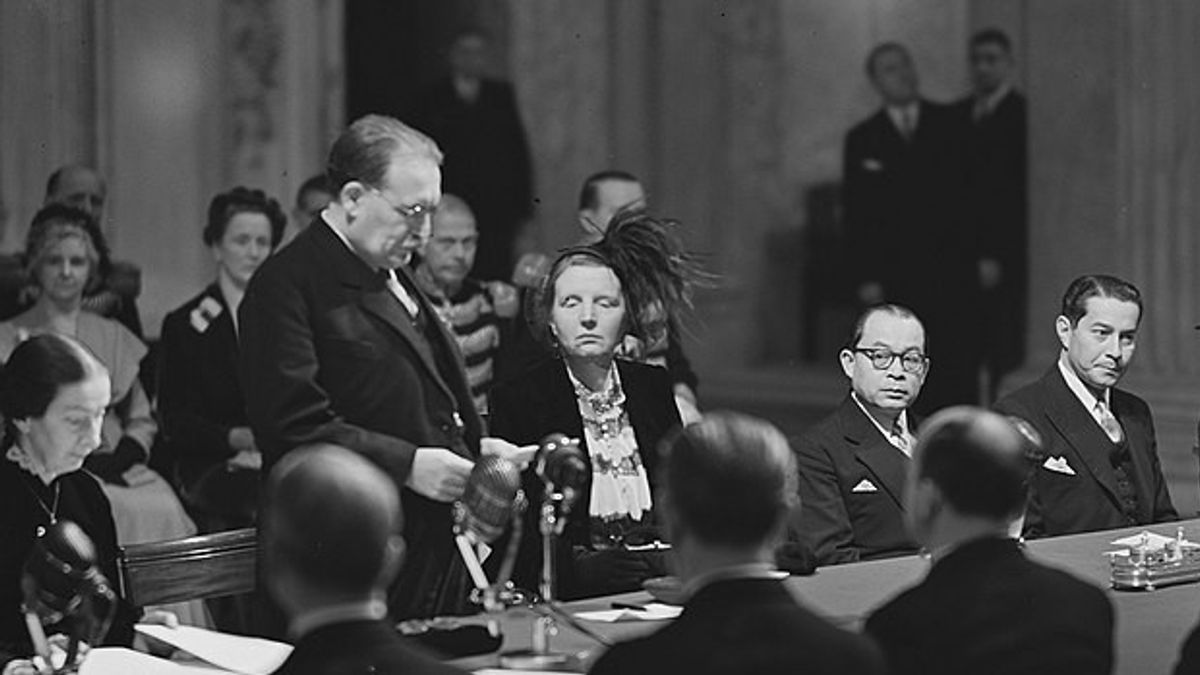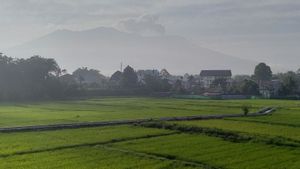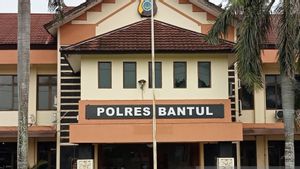JAKARTA History today, 73 years ago, December 27, 1949, Prime Minister of the Republic of Indonesia, Mohammad hadtta attended the handover of Indonesia's sovereignty in the Netherlands. The transfer of sovereignty was carried out at the Paleis op de Dam (Istana Dam) and witnessed directly by Queen Juliana.
Previously, Bung Hatta and other freedom fighters had desperately made his people free from the shackles of colonialism. He has felt prisons and exiles. Therefore, Hatta mentioned the two most memorable moments in his life: the proclamation and submission of sovereignty.
Hatta's political career became increasingly prominent when studying in the Netherlands. He made the Indonesian Association (PI) his political vehicle. A vehicle that is able to bring a message to the world that the bumiputras want to escape the shackles of colonialism.
He also became more mature considering colonialism and imperialism as a reflection of a greedy nation. For him, there is no other word than fighting this greed. The Dutch smelled his actions. He was in prison because he was considered to be involved in treason. However, then released.
Hatta's struggle continues. Even though his education in the Netherlands has been completed. He often spoke from the pulpit to the pulpit to echo the narrative of independence in the archipelago. Moreover, he actively writes in the mass media to ignite the spirit of the bumiputras.
He was again suspected by the Dutch. Hatta was then exiled to Boven Digoel and Banda. In fact, prison and exile did not make him jerah. He continued to fight until Indonesia finally became independent. This incident was marked by the Proclamation of Indonesian Independence on August 17, 1945, represented by Soekarno and Hatta.
"After the Proclamation was read out and the national flag of the Red and White was raised as a sign that the Indonesian nation was independent, state, and sovereign, as well as the song Indonesia Raya was sung, the people cheered and cheered. We sat for a while for about half an hour."
"After that I went home. At home I was waiting for my relatives who scattered and lived in Jakarta. Everyone was touched and congratulated Indonesia's independence. After five minutes I sat in the family environment, Ir came. Surachman was touched with emotion. I was hugged while crying with joy," said Bung Hatta in the book Mohammad Hatta: Memoir (1978).
Hatta's struggle did not end. The Dutch's desire to control Indonesia for the second time made him fight again. During the revolution, Hatta continued to roll out a diplomatic agenda. From Linggarjati Negotiations to Round Table Conferences.
A series of agreements made Indonesia able to maintain independence. The Dutch finally wanted to fully surrender Indonesia's sovereignty. The transfer of sovereignty took place at the Dam Palace, Amsterdam, Netherlands on 27 December 1949. The Indonesian side itself was represented by Bung Hatta. While the Netherlands was represented by Queen Juliana.
In the future, Hatta said that in his life there were two peaks that satisfied his heart. First, as the proclaimer of the independence of the Indonesian people on August 17, 1945. Second, as representatives of the Indonesian nation, he signed a document of recognition of sovereignty by the Dutch side," explained Rosihan Anwar in the book Sutan Sjahrir: Democrat Sejati, Humanitarian Fighters (2010).
The English, Chinese, Japanese, Arabic, and French versions are automatically generated by the AI. So there may still be inaccuracies in translating, please always see Indonesian as our main language. (system supported by DigitalSiber.id)









